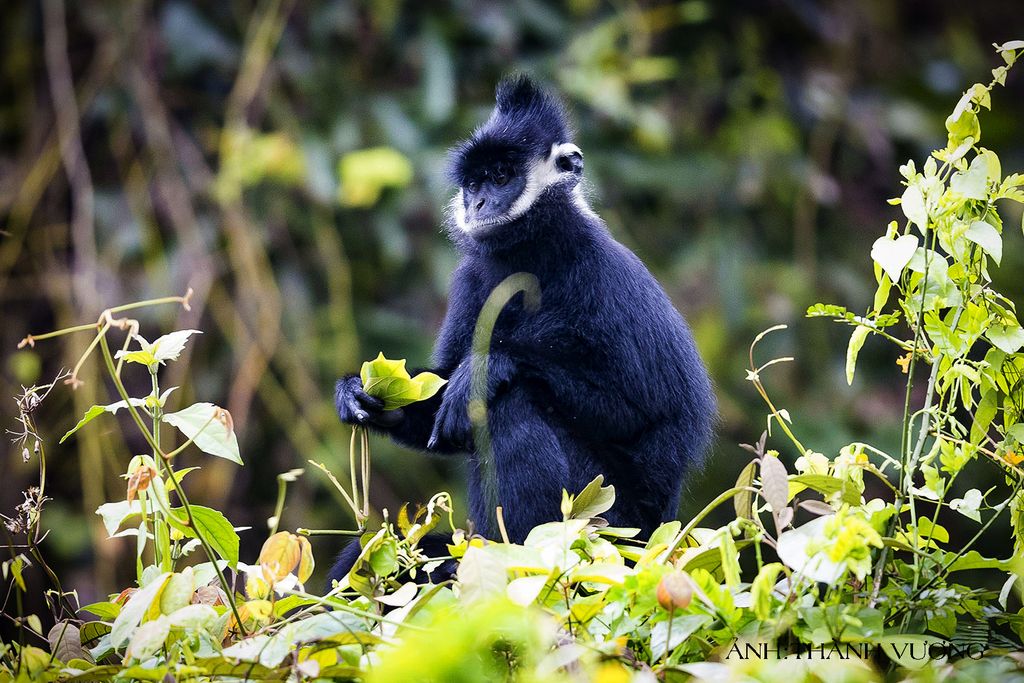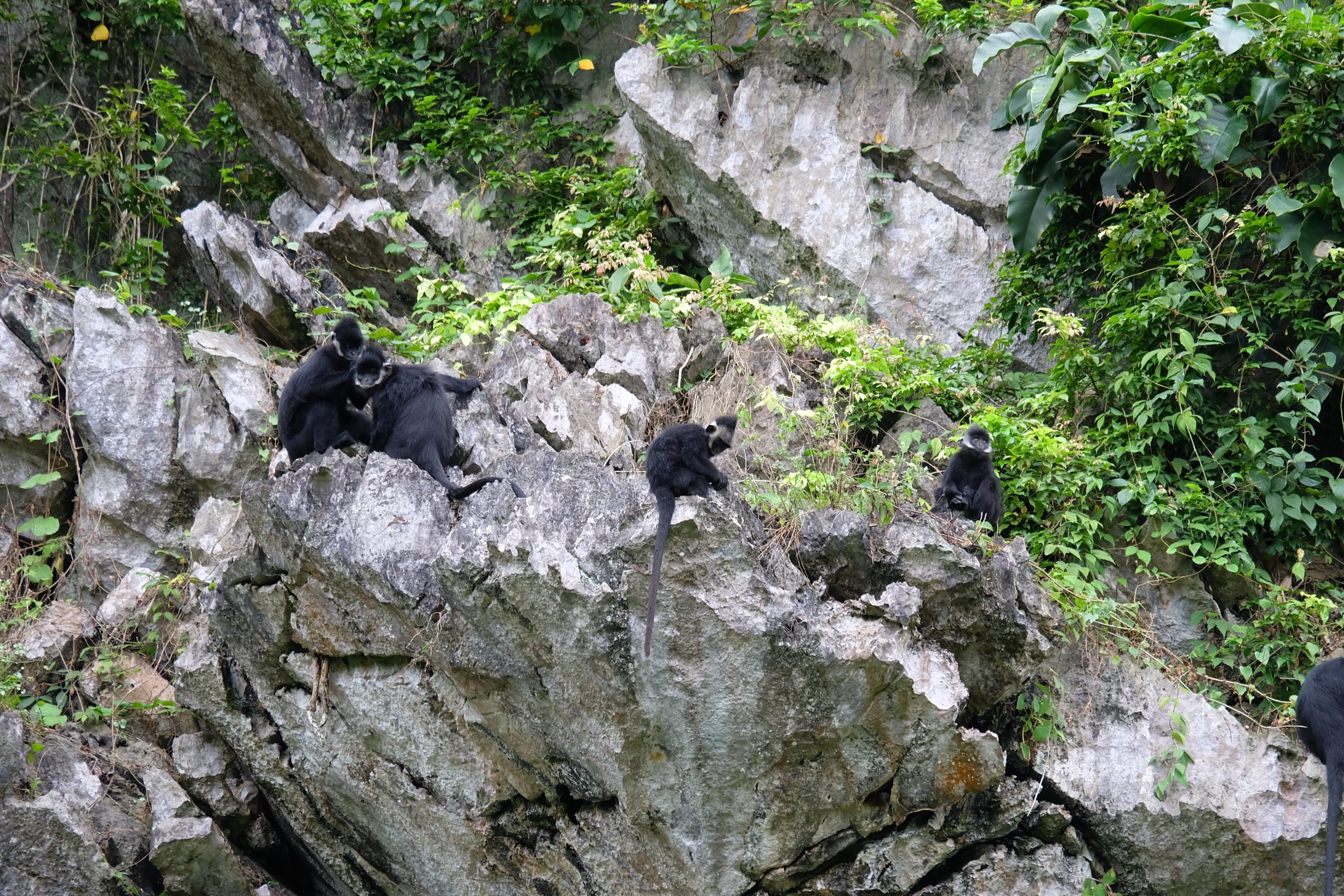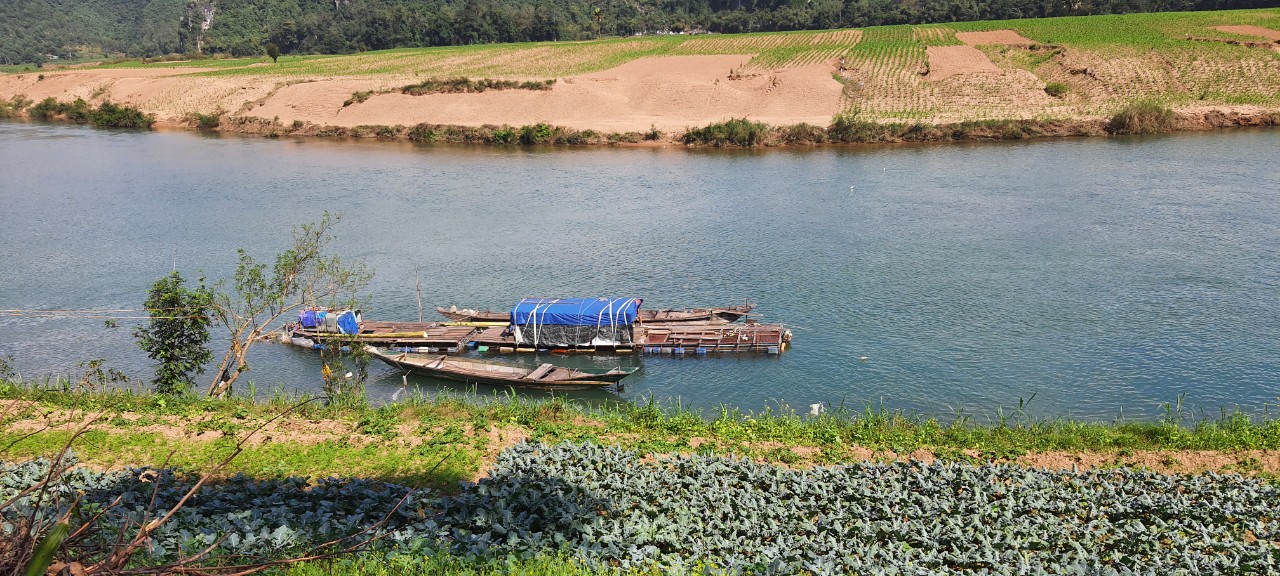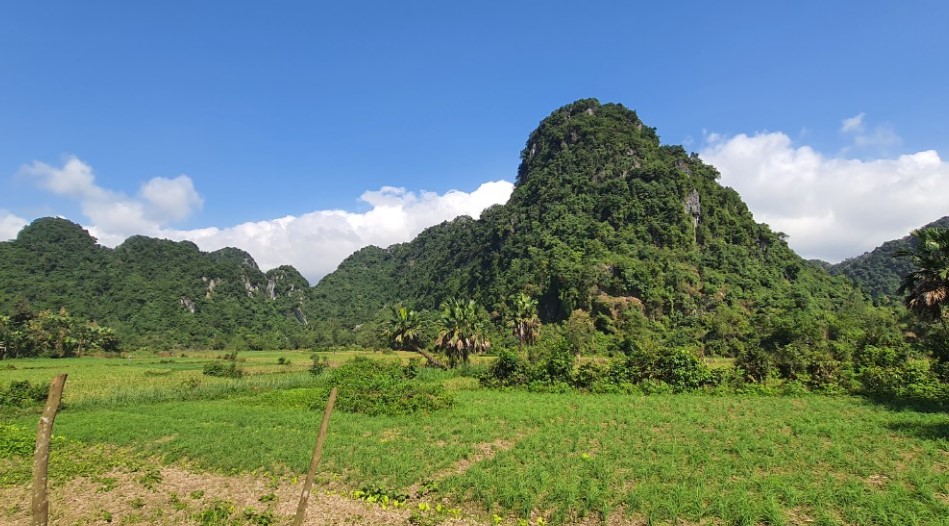People, Primates, Plants

-
Status of project
Ongoing -
Region
Asia -
Country
Vietnam -
Programme
Ecological Restoration Alliance of Botanic Gardens -
Workstream
Saving Plants -
Topic
Ecological Restoration
Overview
People, Primates, Plants: Co-managing Biodiversity and Improving Livelihoods in Vietnam is a Darwin Initiative funded project.
Tuyen Hoa district in Vietnam’s Quang Binh province, located in the Indo-Burma biodiversity hotspot, boasts exceptional natural and cultural wealth. The region’s evergreen tropical forests are home to unique fauna and flora. This includes the Endangered (IUCN) and CITES Appendix II listed white-cheeked langur (Trachypithecus hatinhensis), and threatened tree species such as the Critically Endangered ebony Diospyros mun and the Endangered legume Pterocarpus macrocarpus. Illegal cutting of valuable timbers, wildlife hunting, in particular of the white-cheeked langur, agricultural expansion, and indiscriminate collection of non-timber forest products, are key drivers of biodiversity loss. Quang Binh province therefore has approved the establishment of over 500 hectares of Special-use forest (SUF) in Tuyen Hoa. The SUF presents important biodiversity conservation opportunities but also challenges for livelihood security of some 2,770 households, half of whom are poor and dependent on wild forest resources, farming and raising livestock in the SUF area. The establishment of SUF directly impacts their livelihoods as legal restrictions apply to agricultural activities and collection of forest products.
Therefore, through this project, we aim to:
- Strengthen livelihood security of the Kinh and other local ethnic groups through sustainable agroforestry models.
- Develop practical SUF co-management models that involve and recognise the voluntary community groups as a key mechanism to protect native forest resources.
- Enhance technical capacity on ecological restoration and sustainable agroforestry to reduce the lack of knowledge and practical knowhow among local communities about the links between langur conservation and the restoration needs of the wider habitat.
- Promote policy recommendations on best-practice models for SUF community co-management, sustainable agroforestry and forest ecological restoration with local, provincial and national authorities for policy dialogue and integration in ongoing and future policy frameworks and strategies for sustainable forest co-management.

Outputs
- The socio-economic status, income sources and market situation of households in Tuyen Hoa district are assessed and market-based agroforestry practices are established
- The SUF community co-management plan is jointly developed and implemented with community members and local authorities
- Knowledge of and capacities and capabilities of local communities in Tuyen Hoa district in forest restoration, sustainable and income generating agroforestry, small-scale farm businesses, and prevention of zoonotic diseases from close animal-human interaction, are increased
- Best-practice of development and implementation of community-based management of SUF, including forest ecological restoration and sustainable agroforestry models, is promoted for integration in national and sub-national policies by the end of the project (2025)
This project has several public engagement activities including:
- Train-the-trainer (ToT) training about Biodiversity and prevention on zoonotic disease transmission for community and district officers, villagers, and members of the Langur Voluntary Conservation Group of the Tuyen Hoa district.
- Schools program with four local high schools from the project area, in which students learn more about the white-cheeked langur and their habitat. Ten lucky students in each school will join an excursion to observe the white-cheeked langur in the field.
- Public Awareness materials, including two leaflets about the white-cheeked langur and their habitat and a leaflet about zoonotic disease transmission spread by animals, as well as an awareness poster.

Partners
Supported by the UK government’s Darwin Initiative, this project is implemented in partnership with Center for Highland Natural Resource Governance Research (CEGORN), Viet Nam, ICRAF (World Agroforestry), Viet Nam and Langur Conservation Voluntary Group (VCG). This 3-year-project started in June 2022 and is expected to run until March 2025.


Funded by the UK Government through Darwin Initiative.